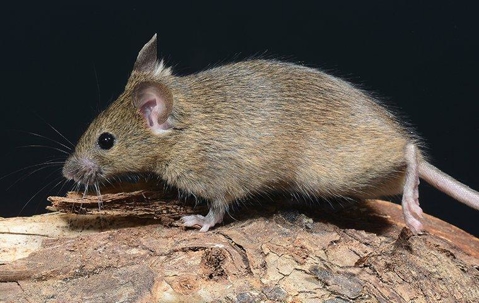Mice are small but mighty creatures, but they can significantly endanger the health and welfare of those who live in and frequent your home. In Alexandria, house mice (mus musculus) are among the top three most common rodents, along with Norway rats and roof rats. They range in size from 2.5 inches to nearly four inches long, with tails as long as the length of their heads and bodies. House mice tend to have minimal fur but range from light brown to black or grey in color. They can also be identified by their white or cream-colored underbellies, as well as their round bodies. Read on for more about the dangers that house mice pose, including the damage they cause and the diseases they carry and find tips on house mice prevention.
Are House Mice Dangerous?
House mice in our homes are dangerous to human health and welfare, and they can also cause significant damage to your home. Mice have long shared a relationship with humans, and that’s because we allow them better and easier access to food, water, and warm shelter. While house mice may feed on seeds, grains, nuts, insects, and small fruits in the wild, they'll eat just about anything when they find their way indoors. Contrary to popular opinion, cheese is not their go-to snack, but house mice prefer cereals, oats, cakes, biscuits, and other items commonly stored in pantries. Some of their other favorites include chocolate, peanut butter, jam, and hazelnut spread.
The ferocious appetite of house mice, coupled with the incessant gnawing of their chiseled, sharp teeth, makes it so they’ll chew through boxes and bags to get ahold of your stored food. When this happens, they’ll leave traces of saliva, droppings, and feces in and around these food items, contaminating them. If these foods are later handled and consumed by people or eaten on surfaces where house mice have traveled across, those who live in or visit the home are at risk of contracting diseases they spread.
Some of the diseases that house mice are linked to spreading include:
- Hantavirus
- Salmonella
- Lymphocytic choriomeningitis
There’s Never Just One…
One of the reasons that house mice are so difficult for homeowners to get rid of on their own is their prolific nature. A single female house mouse may give birth five to 10 times a year, producing anywhere from three to 14 pups at a time. Infestations indeed contain more than one female mouse, a minor concern that can quickly escalate into a full-blown infestation and seemingly overnight!
Because of the number of house mice in an infestation, mice can break off and nest in different parts of the home, making it nearly impossible for homeowners to eradicate every mouse without professional help.
Tips On Preventing House Mice
To make your home less appealing to house mice seeking shelter, consider the following three tips:
Seal Up All Potential Entry Points: Because mice have a semi-collapsible rib cage, they can fit their bodies through a hole the size of a pencil eraser in diameter—and thus, they easily can and often do, squeeze themselves through cracks in foundations and damage found in exterior-facing walls and doors. Use sealants that mice can’t chew through, such as silicone sealant, incorporating steel fibers or steel wool to close these openings.
Store Food In Glass Containers: Mice can’t chew through glass containers, so opt for these sealed containers; plastic Tupperware won’t work.
Use Mothballs: Mice don’t like the smell of mothballs, so laying them in and around your home can help to deter them.
Say ‘Bye’ To Mice For Good With Professional Help
The easiest and most effective way for homeowners to get rid of a mouse infestation for good is professional help. Since 1991, Matar Termite & Pest Control has provided homeowners with comprehensive pest control services for mice and other pests custom-tailored to their needs. If you suspect an infestation, don’t wait. Give us a call at (571) 483-3575 today.

